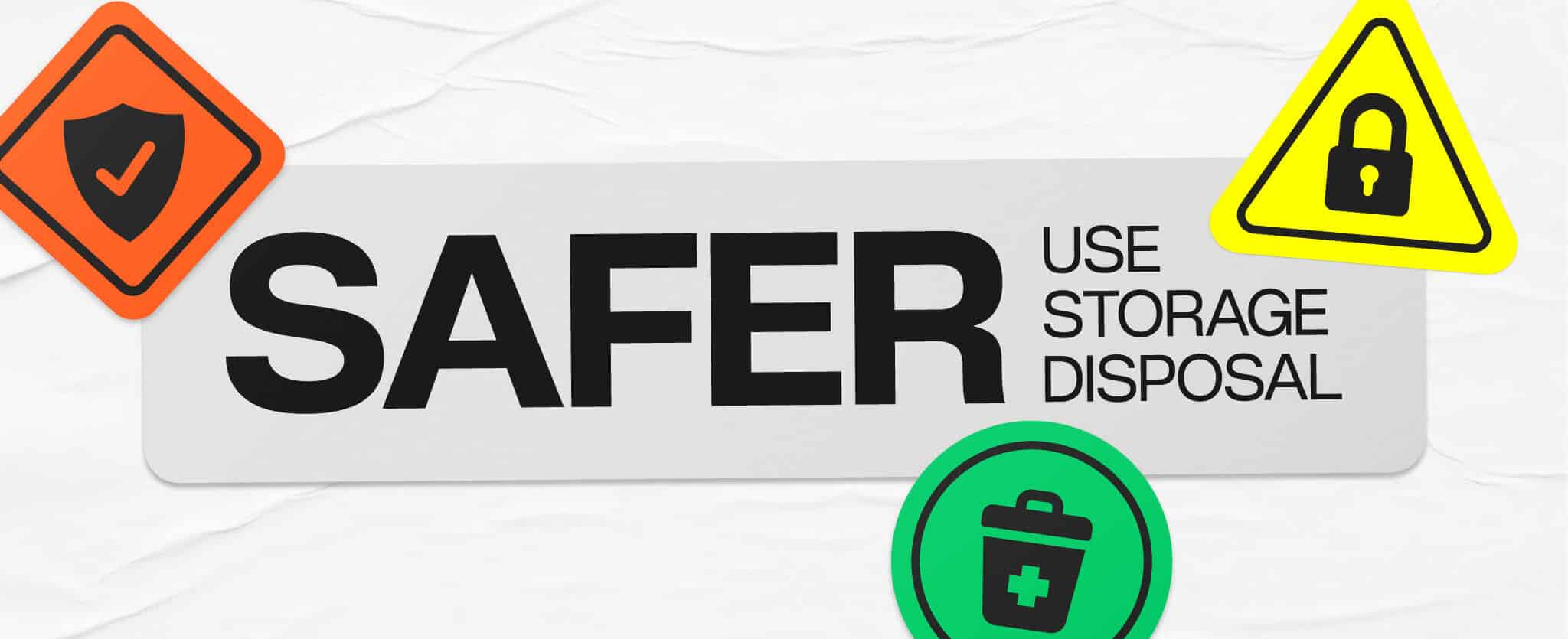
Learn SAFER ways to Use, Store, and Dispose of Medications.
Note: If you are experiencing an emergency, stop reading and call 911 (medical/police) immediately. If you are experiencing a mental health crisis, call or text 988 (mental health lifeline) to speak with a counselor.

Safer Use. Safer Storage. Safer Disposal.
The same prescription medications that help you feel better can hurt you or someone else when they’re not used, stored, and disposed of properly.
Why it matters: Using, storing, and disposing of medications properly can prevent unwanted side effects including misuse and accidental overdose. Just a few basic precautions can make a world of difference.
We’ll get into some specific tips and best practices next, but the short version is this:
Safer Use
Using Your Medications
Prescription drugs can be just as dangerous as street drugs when not taken as prescribed.
Safer Storage
Storing Your Medications
Note: Most Oklahomans who have abused medications got them from family or friends. Let’s be good neighbors, family members, and protectors to one another.